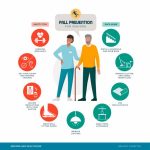global prevalence of obesity and overweight is increasing at an alarming pace. If a person’s daily food intake exceeds the body’s ability to use energy, these conditions are likely to occur. This has been recognized as a factor in significant health issues, including cardiovascular disease, type 2 diabetes Mellitus and sleep disorder, infertility for women, aggravated muscular problems, and shortened lifespan. These conditions can lead to high-risk cardiovascular disease if you’re overweight. The size of the waist, hip ratio, height, and the relationship between weight and height can help determine if someone is obese. The Body Mass Index (BMI) is a measure that measures body mass. Although it is not the most accurate way to determine your cardiovascular risk, the BMI can help you identify the likelihood of developing heart disease or stroke. A BMI greater than 25 is considered overweight. It is considered obese if the BMI is greater than 30.
Outcomes and Goals
These are the expected outcomes and shared goals:
The patient asserts ownership of current eating habits.
The patient designs diet modifications to achieve their long-term weight control goals using the principles of balance, variety, moderation, and balance.
The patient gives accurate information on weight loss benefits.
The patient describes the steps required to begin weight loss.
Patients state the factors that contribute to weight gain.
The patient identifies the behaviors that are still under their control.
The patient loses weight reasonably (1 to 2 pounds per semaine).
The patient arranges activities that require energy to be included in daily life.
A patient uses scientifically sound sources to assess the need for nutritional supplements.
A patient shows appropriate menu planning and meal selections in pursuit of weight loss.
Nursing Interventions
These are the therapeutic nursing interventions to treat Imbalanced Nutrition: More than Body Requirements.
Keep a food- and exercise log.
Weekly Stimulus control graph weight
Limit food intake to one place in your home
To eat, sit down at the table.
Each day, plan your food intake.
Adjust your schedule to avoid eating in an unsuitable way
You can save or reschedule daily activities to avoid hunger times.
Keep a list of activities in your refrigerator to avoid boredom.
When you are at a party, eat before your go and avoid snack foods. Instead, opt for lower-calorie drinks.
Before going to a restaurant, decide what you want.
Take a glass of water with you before every meal. You can also sip water between each bite of food.
Before you put more food on your utensil, swallow the food.
Be the last person to finish your meal.
Take a moment to pause during your meal. Try increasing the number of pauses.
Reward yourself
Track your progress
For a meaningful reward, agree with your partner or yourself.
Don’t reward yourself with food.
Cognitive strategies
Exercise is a way to control your hunger.
Practice relaxation techniques
Imagine ordering a side salad, diet dressing at a fast-food place, and a small hamburger.
Imagine yourself eating a fresh apple instead of apple pie.



